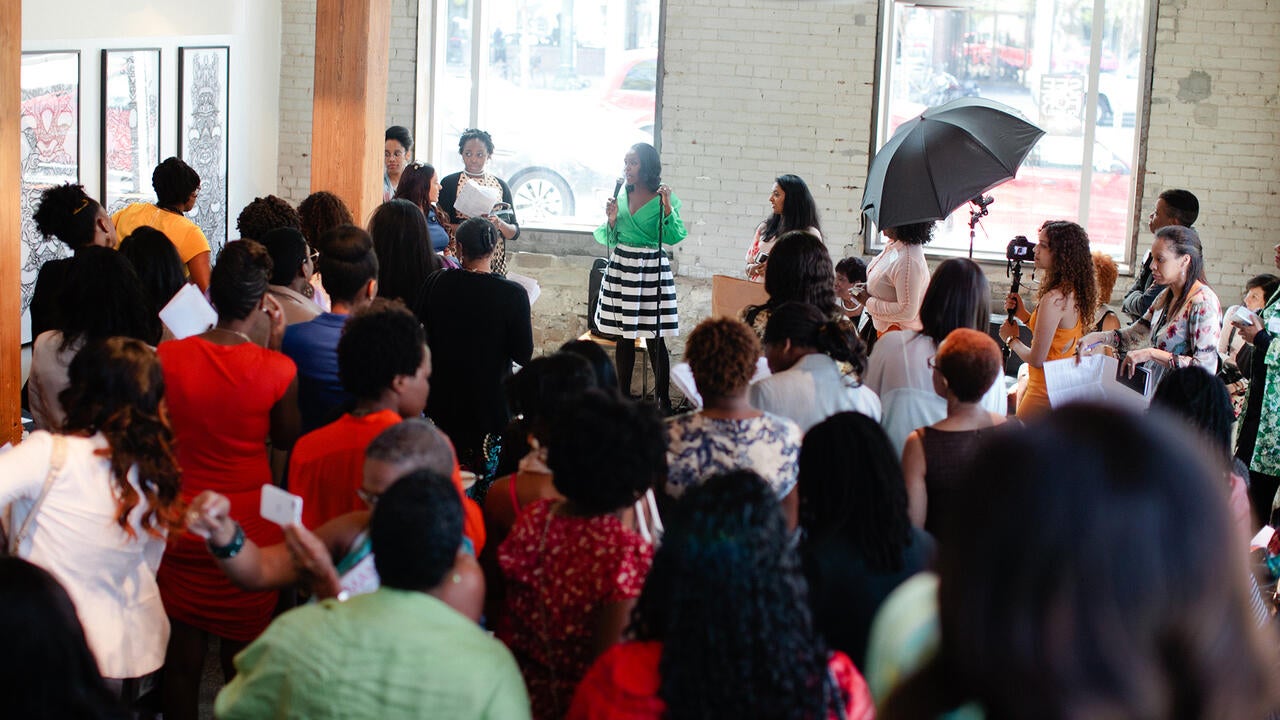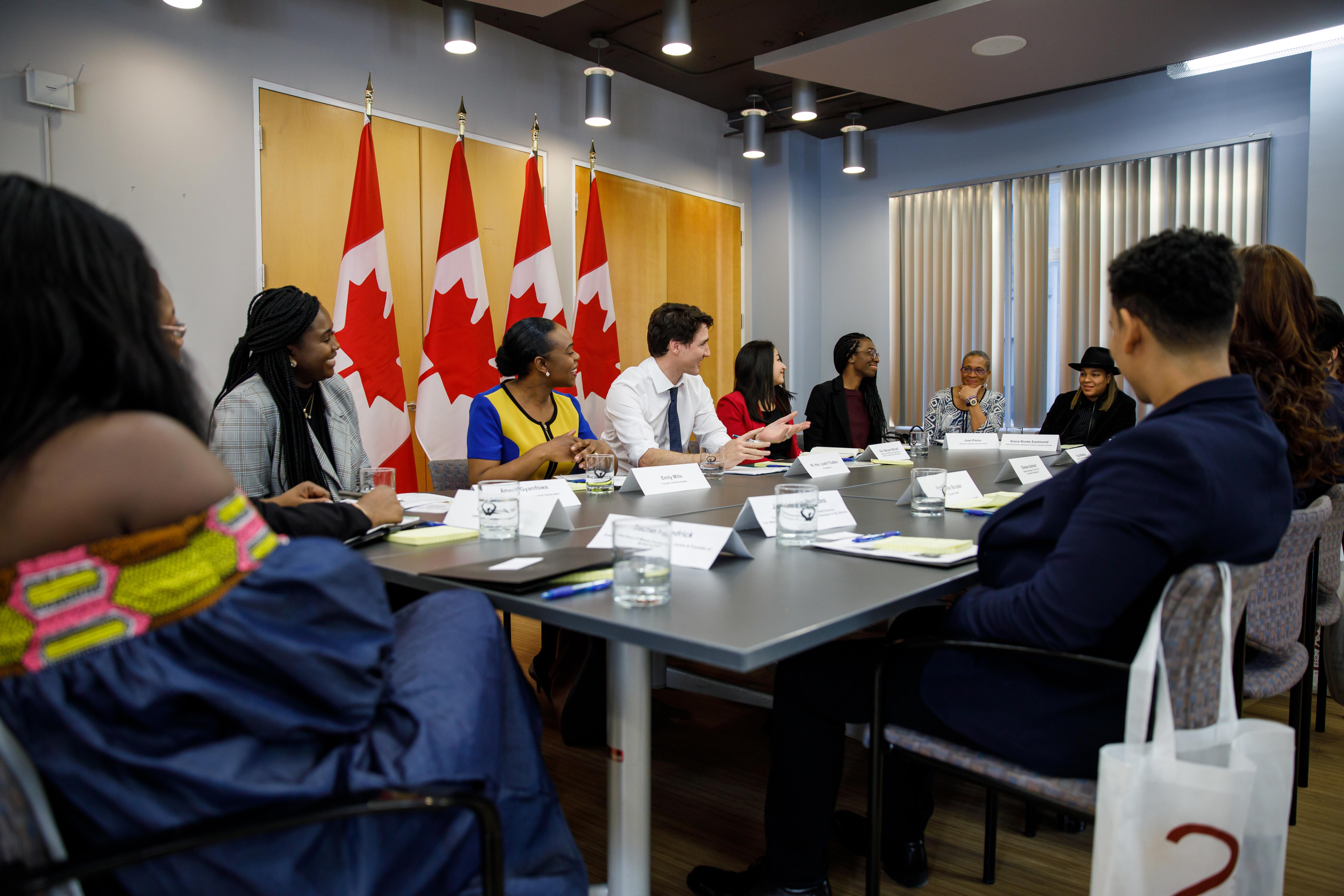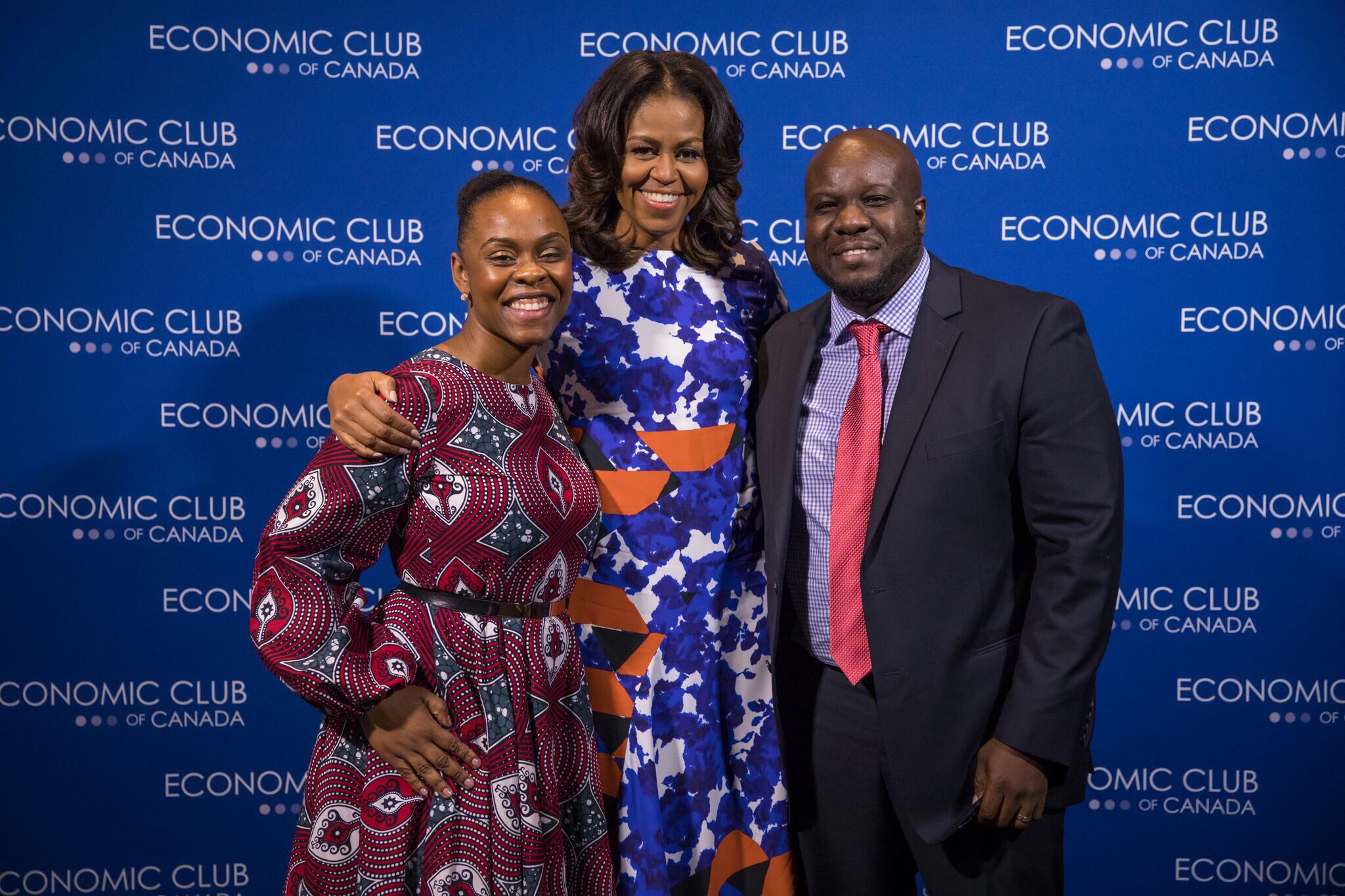
How She Hustles
Keynote speaker for Waterloo’s International Women’s Day event Emily Mills reflects on her journey as a Black entrepreneur and the future of women during post-pandemic recovery

Keynote speaker for Waterloo’s International Women’s Day event Emily Mills reflects on her journey as a Black entrepreneur and the future of women during post-pandemic recovery
By Natalie Quinlan University RelationsEmily Mills says she was looking for a peer-community of diverse women leading on their own terms when she founded How She Hustles in 2010.
“When we hosted our first event, the issues of equity, diversity and inclusion weren’t top priority in the world the way they are now,” Mills says. “That’s why so many diverse women joined us in person to feel reflected and included — they also wanted to feel informed and part of a community.”

How She Hustles Founder Emily Mills (centre) meets with Prime Minister Justin Trudeau.
Now, more than a decade later, the pandemic has expanded How She Hustles’ reach, gaining attention from organizations looking to engage Black and BIPOC women around the topics of work and entrepreneurship. Over the past two years, Mills’ company has been hired numerous times to amplify the stories of
diverse women through digital storytelling and speaking engagements.
“The pandemic has taken its toll on all of us but indeed, I’ve personally seen the disproportionate impact on women — especially Black women who are raising families while pursuing entrepreneurship,” Mills says. “Black women in my circles experienced a new level of trauma and stress over the last two years with multiple ‘pandemics’ happening at the same time — including a health crisis, changing educational models and anti-Black racism.”
Mills, who is Waterloo’s keynote speaker for its International Women’s Day event on Tuesday, March 8, says that while she has no magic wand when it comes to solving pay equity, workplace advancement and inclusive policies to level the playing field for women and Black women in Canada, organizations must stop asking for free labour in the form of speaking, informal consulting and community convening.

How She Hustles Founder Emily Mills (left) with First Lady Michelle Obama (2018)
“Specifically, as a Black Canadian woman, International Women’s Day is an opportunity to seek out lesser-known historical figures and everyday ‘sheroes’ who may have been overlooked or undervalued,” Mills says. “When we apply an intersectional lens to International Women’s Day, it’s easy to see how many stories of impact and inspiration we have yet to celebrate widely.”
During Waterloo’s virtual International Women’s Day event, Mills will be joined by other community leaders, including:

How She Hustles “Startup and Slay” Event (2018)
When asked what silver-lining working women can look forward to as the world continues to tackle COVID-19 and bear the brunt of juggling many responsibilities, Mills says that she hopes women can give themselves permission to reframe everything.
“By reframing the way we see the world as individuals and collectively, we’ll be able to rethink how to have more healthy, equitable and sustainable lives. We must give ourselves permission to reframe everything to create more harmony, purpose and balance,” Mills says. “I think we’ve learned that so many of us were functioning on the edge — a tipping point that couldn’t and didn’t last. What’s next is how we build back better.”
To learn more about How She Hustles, follow Mills’ efforts on Twitter or Instagram and sign-up for the newsletter.

Read more
Waterloo celebrates six recipients on this year’s Women’s Executive Network list

Read more
Lunaria helps organizations create workplaces where people of all identities can flourish

Read more
Waterloo's 16 days of activism includes Dec. 6 online ceremony
The University of Waterloo acknowledges that much of our work takes place on the traditional territory of the Neutral, Anishinaabeg, and Haudenosaunee peoples. Our main campus is situated on the Haldimand Tract, the land granted to the Six Nations that includes six miles on each side of the Grand River. Our active work toward reconciliation takes place across our campuses through research, learning, teaching, and community building, and is co-ordinated within the Office of Indigenous Relations.